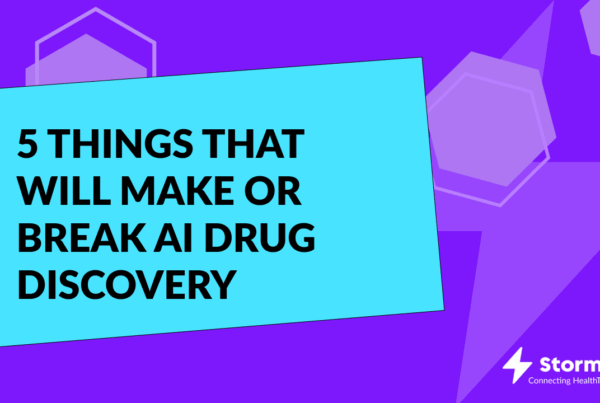As our Healthcare continues to transform, healthcare companies are under increasing pricing pressure and are required to continually show the value of their products or services as the cost of healthcare rises. More and more healthcare companies are investing in new capabilities in an attempt to harness the potential of Real-World Data (RWD) as a result of these market factors.

So, what is Real-World Evidence (RWE)…?
Real-World Evidence, Defined
Before we define what Real-World Evidence (RWE) is, we will need to understand what Real-World Data (RWD) is. In simple words, RWD is characterized as any data taken in the context of typical care delivery, as opposed to data collected in a clinical trial where the study design limits variability in ways that are not reflective of real-world treatment and results. There are four main forms and sources of RWD:
Clinical Data
These types of clinical data are derived from Electronic Health Records (EHRs) and case report forms (eCRFs) and provide patient demographics, family history, comorbidities, procedure and treatment history, and outcomes.
Patient-Generated Data
This type of data is gathered from Patient-Reported-Outcome (PRO) surveys and provides insights directly from the patient. This allows researchers to better understand what happens outside of clinic visit procedures, and hospital stays.
Cost and Utilization Data
This data can be gathered from claims and public datasets which provide information regarding healthcare services utilization, population coverage, and prescribing patterns.
Public Health Data
This data is gathered from various government data sources which add crucial information to allow stakeholders to better serve the needs of the populations they serve.
Real-World Evidence (RWE) has become a topic that everyone wants to address. It is important to address RWE as it complements data from Randomised Controlled Trials (RCTs).
Now, going back to the main topic: according to the U.S. Food and Drug Administration (FDA), RWE is defined as the clinical evidence regarding the usage and potential benefits, or risks of a medical product derived from an analysis of RWD.
Importance of Real-World Evidence
Compared to standard Randomized Controlled Trials (RCTs), which is a gold standard in the approval of new medical therapies, RWE can provide a comprehensive understanding of how a new therapeutic option will work in the “real world” rather than through typical RCTs alone. A typical RCT enrolls a small portion of the disease population and tests therapies in a controlled setting, which is why RCT often lacks generalisability and external validity. Moreover, RCTs tend to take a longer time to complete, and it is more costly.
The advantage of RWE, as opposed to RCTs, lies in clinical experiences across a broader and more diverse patient population. Plus, larger sample sizes and longer follow-up periods are commonly included. This allows for the evaluation of long-term effects and the provision of additional security information following drug approval. Furthermore, because these investigations employ existing data sources, they can be less expensive and faster than RCTs.
Through the usages of RWE, researchers are able to better understand what works for different patient types and it enables researchers to assess the efficacy of drug treatments and other interventions while taking into account other factors and variables.
Usage of Real-World Evidence In HealthTech
Due to its broader and more diverse patient population, RWE can be widely used throughout the healthcare system. There are four main uses of RWE: Life Science Research, Policy Makers and Regulators, Health Plans and Payers, and Physicians and Healthcare Providers.
Life Science Research
When it comes to real-world evidence, life science researchers and biopharmaceutical businesses are key stakeholders. As mentioned above, real-world evidence can complement traditional RCT conclusions. RWE can offer life science researchers new insights into the larger impact of a medication’s use in routine clinical care, such as the safety and efficacy of newer medicines.
Policy Makers and Regulators
Usage of RWE in conjunction with RWD can assist regulators in monitoring post-market safety and adverse events as well as aiding in FDA decision-making. As a result, using RWE has the potential to influence medicine approvals and hasten drug development.
Health Plans and Payers
RWE adds value to health plans and payers through informed safety monitoring, utilization management, and cost/value analysis. Although this varies company by company, few see the benefits of using the RWE studies to advise pharmacy and therapeutics (P&T) committee decisions. Again, RCTs remain gold-standard in payer decision-making, however, some are turning towards RWE as it provides greater validity.
Physicians and Healthcare Providers
As a result of RWE findings assisting a care team’s understanding of an illness and informing data-driven therapy decisions, RWE can help clinicians by creating more targeted and suitable treatment strategies for their patients. As mentioned earlier, RWE can complement the findings by adding more perspective to the results of RCTs.
Due to the process of collecting data depending heavily on doctors and other healthcare professionals, the quality of real-world evidence depends on the real-world data used to produce it. Clinicians frequently enter structured clinical data, such as diagnoses, lab test orders and results, and prescription drugs, into electronic health record (EHR) systems during patient interaction. Furthermore, payers receive claims from providers that represent yet another source of actual data. These data can then be de-identified and used to produce actual evidence in the real world.

As for HeathTech, RWE and HealthTech work hand-in-hand. According to IQVIA MedTech Vice President, digital health will play a critical role in the future of health care, and real-world evidence will play a critical role in the future of digital health. This is due to the new types of data that are being generated by digital health which can be controlled to drive behavioral change and accelerate innovation. To improve quality and outcomes across the whole digital health ecosystems, RWE could be leveraged at every stage of the product life cycle.
Storm3 Is Here For You
RWE is becoming more significant in the healthcare industry, and we want to be at the core of this. At Storm3, we are a digital health executive search firm dedicated to working with the top companies in all HealthTech sectors. Whether you are a start-up or planning to scale up, Storm3 is here to help you find the right senior talent for the right specialism. If you are looking to expand your team, contact us.







